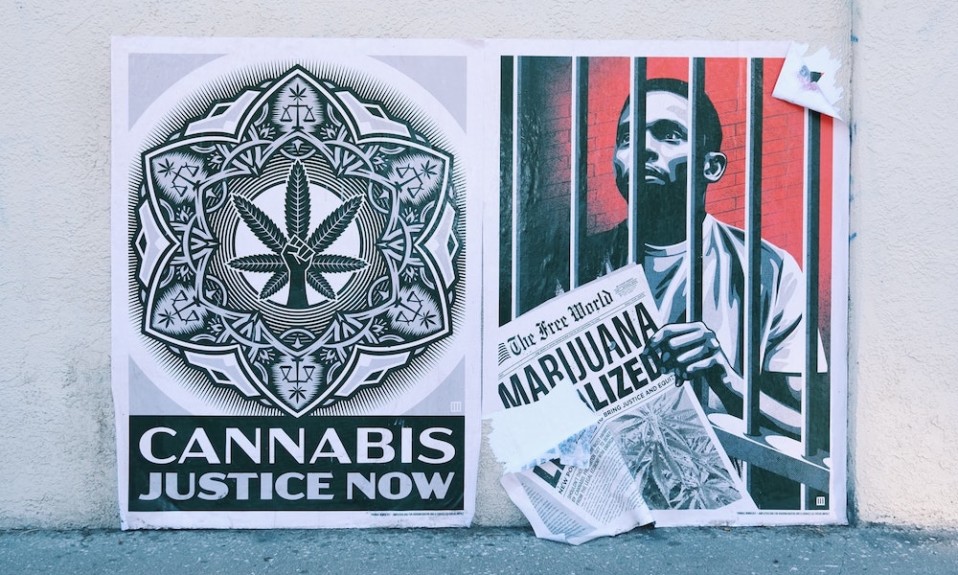The Cannabis Administration and Opportunity Act represents a major departure from the draconian ethos of the War on Drugs
By Jason Langendorf
A group of U.S. senators led by majority leader Chuck Schumer (D–N.Y.) proposed a bill on Wednesday—the Cannabis Administration and Opportunity Act—that would decriminalize marijuana at the federal level and aim to begin correcting the missteps of America’s long War on Drugs.
Schumer was joined by Senate Finance Committee chair Ron Wyden (D-Ore.) and Cory Booker (D-N.J.) in releasing the draft bill, which would remove cannabis from the federal list of controlled substances and leave states to decide their own cannabis laws.
Not only will this legislation remove cannabis from the federal list of controlled substances, but it will also help fix our criminal justice system, ensure restorative justice, protect public health and implement responsible taxes and regulations.”—Sen. Chuck Schumer
“The War on Drugs has too often been a war on people, and particularly people of color,” Schumer said in unveiling the draft bill. “Not only will this legislation remove cannabis from the federal list of controlled substances, but it will also help fix our criminal justice system, ensure restorative justice, protect public health and implement responsible taxes and regulations.”
Why the Cannabis Administration and Opportunity Act Matters
Wednesday’s proposal was just a preliminary step in what figures to be a long journey toward any future federal decriminalization of marijuana. But the draft bill can be viewed as an extension of America’s changing attitudes toward cannabis and the increasing calls to rethink the nation’s highly politicized and racialized cannabis policy.

In a summary of the draft, Schumer, Wyden and Booker cite widespread public support for marijuana legalization, the potential for job creation and economic growth in a legal cannabis market and the need to correct the disproportionate burden of federal prohibition shouldered by people of color.
More than 545,000 arrests for cannabis possession were made in the U.S. in 2019, and Black people were 3.6 times more likely to be arrested for cannabis use than white people, despite cannabis use being comparable across demographics. Meanwhile, people of color account for less than one-fifth of cannabis business owners and managers.
“While red and blue states across the country continue to legalize marijuana, the federal government continues to lag woefully behind,” Booker said. “It is time for Congress to end the federal marijuana prohibition and reinvest in communities most impacted by the failed War on Drugs.”
How the Bill Would Help
The Cannabis Administration and Opportunity Act builds on the MORE Act (which passed the House in December), calling for a larger public discussion that focuses on several key areas addressed in the draft, including:
- Decriminalization by removing cannabis from the federal list of controlled substances
- Research, training and public safety
- Restorative justice and equity
- Taxation and regulation
- Public health and industry practices
Specifically, the draft introduces proposals that would address drugged driving and multi-substance impairment, establish Food and Drug Administration (FDA) oversight of cannabis health and safety standards, expunge all federal nonviolent marijuana-related arrests and convictions, and designate tax revenue for programs to help restore communities most affected by harmful, decades-old federal cannabis policy.
While red and blue states across the country continue to legalize marijuana, the federal government continues to lag woefully behind.”—Sen. Cory Booker
Although many hurdles still stand in the way of federal cannabis policy reform—including complicated product categorization, Republican opposition in the Senate and a lack of support from President Joe Biden—all signs point toward an eventual reckoning. With 18 states and Washington, D.C., having already legalized recreational use of marijuana, and in light of the rising public sentiment in favor of decriminalization and the creation of an equitable cannabis economy, the draft bill seems likely to materialize, in some form, as legislation in the not-too-distant future.
“This is monumental,” Schumer said of the Cannabis Administration and Opportunity Act. “At long last, we are taking steps in the Senate to right the wrongs of the failed War on Drugs.”
Top photo: Mike Von; bottom photo: Clay Banks














